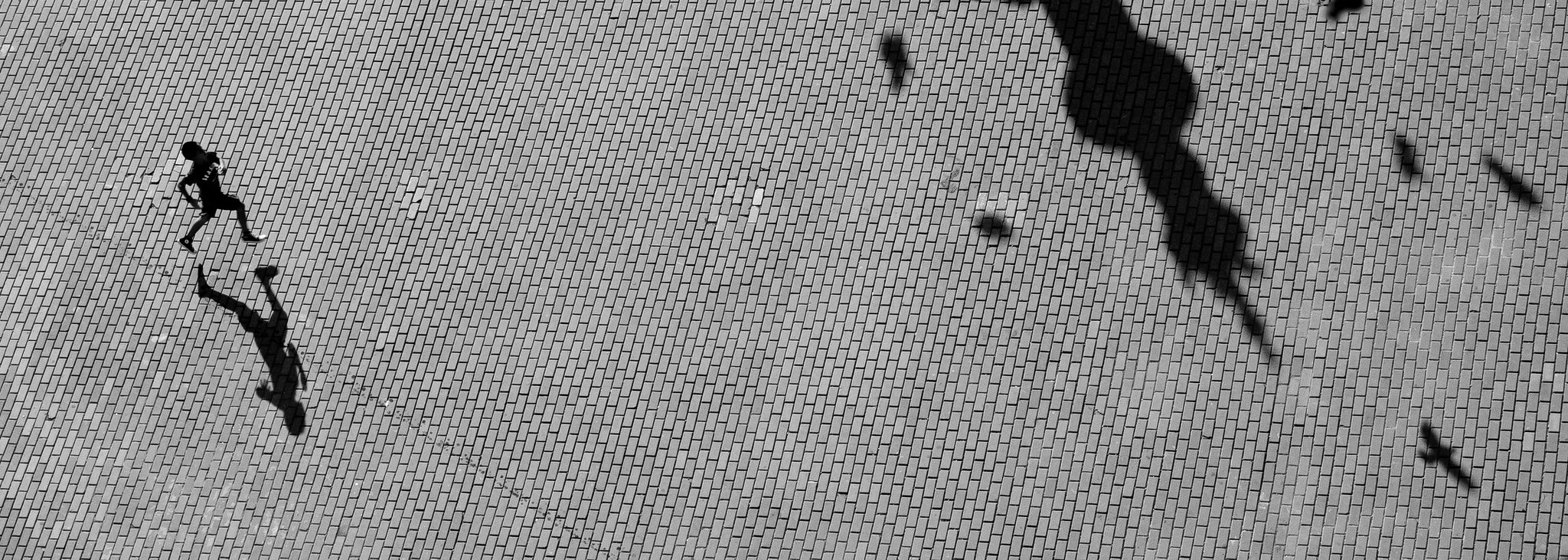Identity can be a complex beast to understand. I was born and raised in Brooklyn, New York, to Haitian parents, and grew up in a system that only ever spoke about the African-American experience: coming from Africa on slave ships, landing in the South, gaining freedom, and participating in the Civil Rights Movement.
My story has a pit stop. We went from Africa to Haiti before we decided to come to the U.S. That means there is a different understanding—no cotton fields, mostly sugar cane fields.
It also means that, at times, I’ve wrestled with being Haitian in a place that wasn’t kind to Haitians, and understanding that when most people look at me, they classify me as African-American. It’s a different history.
I am however, black; part of a Diaspora that covers Africa, Haiti, and the U.S.
At home, there was mostly Kreyol spoken and Haitian home-training. Outside of that, it was the system and experiences of a boy growing up in the ‘hood. Part of that growing up was being saddled with a lot of the stereotypes you see on television when it comes to black men, African-American or not.
I found myself subconsciously denying the Brooklyn ‘hood-ness that I grew up in, which turned out to be a denial of my blackness. It would take me over 20 years to come to that realization.
About five years ago, when I was on the path to becoming a life coach, I learned an unexpected lesson. I found out I was black. Or, should I say, I found out I was running from my blackness.
It was the second day of class and our homework from the previous day was to coach a client and “call them forth,” meaning listen to where they were stuck and push them to move forward. This is the do-whatever-it-takes-to-moveyour-client-where-they-want-to-go portion of coaching.
I did just that, telling my coaching client to go and put his workout clothes together near the door and not to call me back until he was done. He called me back and was grateful.
Here’s the thing: I felt like I wanted to curse at my client. In coaching, you are trained to trust what you feel is needed for your client. I felt, “Get your fucking clothes and put it near the door,” was what he needed, but for some reason, I held back. I wasn’t giving my all for the sake of the client.
When I shared this bit of information with the other members of the coaching class, I was immediately called to the center of the classroom for different people to coach me (standard practice). After many failed attempts, one dude grabbed a chair and sat in it backwards like the Fonz from Happy Days.
He looked me in the eyes and asked me one question: “Are you trying to do everything that is not stereotypical of a black man?” That felt like a bold move on his part as I was the only black person in the class. He was pulled away by the instructors without me answering, as his question was not building on what the coaches before him had started—very common when what is being built with group coaching goes in a different direction. I didn’t think much of his question at the time. I only heard it as just another question in a barrage of questions I was taking on from my coaching peers.
“Are you trying to do everything that is not stereotypical of a black man?”
Later that day, I ended up working one-on-one with that same dude. I told him I thought about it and he was right. Without even knowing it, I was trying to distance myself from the stereotypes of violence and aggression you see on TV or in the movies. Since this wasn’t our first class together he was able to pick up on something I didn’t really know existed. It all started to make sense. For example, when a white person came to give me the homeboy handshake, I would quickly squeeze his or her hand and offer the traditional, mainstream handshake. I would be more reserved, especially when I was in the minority, for fear of being labeled as one of those, “angry black men.” I wanted to be seen as “one of the good ones” and that meant denying part of myself.
You may think, “well what’s wrong with that?”
What I’ve found to be wrong is that this distancing limits my range. It subconsciously has me wasting mental energy on trying not to be something instead of embracing all of who I am as I strive to accomplish things in this life. It’s all part of me and it all has a time and place for manifestation.
I was liberated and I share that story in hopes of freeing people from feeling like they have to totally cut off a part of themselves to become who they want to be. Instead, I ask them—and I ask you, dear reader—to think of yourself as a basketball player (yes, I realize the irony of using this example) who can score using a variety of means. You can lay-up, shoot a jump shot, or even a three-pointer. You have range, and having one of those shots as part of your repertoire doesn’t diminish any of the others.
You just have to know when to use what.
